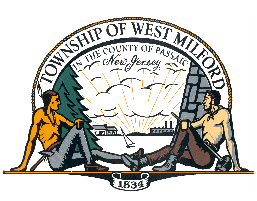News
News items are listed in the sequential order of their release posting dates.
This information may be in a PDF printable format for printing only.
With FREE Adobe Reader® software, you can view and print Adobe PDF files.
Please select a year.
Winter Storm Preparation Tips
From: WEST MILFORD OFFICE OF EMERGENCY MANAGEMENT
Winter storms and blizzards can be deadly if you are caught in, or venture
out into them. Here are a few things you should know if you are out in heavy
snow and cold.
?? Pay attention to weather advisories to avoid being caught in a blizzard or storm.
?? Winterize your car.
?? Always dress according to the weather. Layered clothing is best for cold winter weather.
?? For winter travel, try to keep your gas tank as close to full as possible.
?? If possible, let someone know that you are traveling and your route of travel. That way if
you become stranded someone will know that you are missing and about where you might be.
?? If stranded in a snow storm, for heat let the engine run 10 minutes out of each hour.
?? Keep a blanket in your car, along with a first aid kit, flashlight, some non-perishable food, water,
matches for melting snow for drinking, a map and a compass.
?? If you become stranded, tie a colored cloth to your antenna to indicate trouble.
?? Try to flex muscles and move extremities to improve circulation, which will help to keep you
warm.
?? Leave your car only as a last resort. It is easy to become disoriented and lost in heavy or blowing snow.
?? If out in the snow and cold, cover as much of your skin as possible.
?? Stay dry.
?? If you have a cell phone, make sure to keep it with you and charged, and try to drive in areas
where you have service. Make sure to have the number of the police.
Every homeowner should be prepared for the possibility that a major winter storm
could isolate you from outside help and require you to be self sufficient for an
extended period of time.
?? Plenty of dry blankets, sleeping bags and winter clothing items such as gloves, hats
and coats.
?? The home should be stocked with at least a few days supply of non-perishable
foods and water. (A non-electric can opener is a good idea.)
?? A battery powered radio.
?? Flashlights (or other battery powered light sources).
?? Extra batteries.
?? A well-stocked first aid kit (band aids, bandages, medical tape, antibacterial
soap, pain relievers, thermometer, antiseptic, scissors and safety pins).
?? Some members of the household may require daily medication. An extra supply
of these should be on-hand.
?? Items for babies or infants, such as extra formula and diapers.
?? Matches or lighters.
?? Fire Extinguisher.
?? Emergency contact numbers for police and fire.
Sometimes the small things can save lives. Here are some things to know in the
event that a winter storm traps you in your home and causes the loss of heat and
electricity.
?? Pay attention to the weather forecasts so that you are not caught off-guard. If you
wait until the last minute to try and stock up, you may be left out.
?? Cover cracks around doors and windows.
?? Close off unused rooms.
?? Upstairs or basement may be warmer than the ground floor.
?? Stay inside and avoid travel outside of the home.
?? Move around to improve circulation and warmth.
?? Eat and drink, this helps the body produce heat.
?? At least one house phone should be nonelectric.
?? Conserve fuel supplies.
?? Dress warmly even if you are indoors.
?? Do not open and close doors or windows: This allows heat to escape and cold into the
home.
?? Avoid open flames in the home.
?? Pay attention to children and make sure they are dressed warmly and not being adversely
affected by the cold.
?? Allow faucets to drip slowly in an effort to prevent freezing of pipes.
If the electricity goes out or the gas to your home is shut off, you may be forced to
use alternate heat. Here are a few things to remember if using a space heater or
fireplace.
?? Pay attention to the safety tips that are offered by the manufacturer of the
space heater you are using.
?? Just about any heat source will need ventilation. Do not close your family up in a room with a
space heater.
Burning fossil fuels produces carbon monoxide and other harmful fumes.
?? Heaters that operate via electricity can also be dangerous. Heaters that get too
close to curtains, furniture or clothing can easily start a fire. Heaters should be
kept at least three feet from flammable materials.
?? Keep children away from heat sources. Children can be injured by the hot surfaces
and could start a fire if they knocked the heater over.
?? If using a fireplace, make sure dampers are open and drafting correctly. Also,
be aware of the potential for hot embers, which could start a fire if they fall out of the fireplace.
?? Never allow a person to sleep unattended in a room with a kerosene or other heater that may
emit fumes.
?? Make sure to follow manufacturers instructions when turning space heaters on or off.







 Online Tax Payments
Online Tax Payments
 Recycling & Solid Waste
Recycling & Solid Waste
 Community Services & Recreation
Community Services & Recreation
 Public Safety
Public Safety
 Emergency Information
Emergency Information
 Meetings & Minutes
Meetings & Minutes
 Forms & Documents
Forms & Documents
 Service Request
Service Request
 FAQs
FAQs
 Links
Links
 Contact Us
Contact Us





